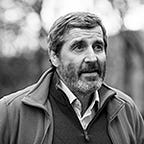“Between stimulus and response, there is a space.
In that space is our power to choose our response.
In our response lies our growth and our freedom.”
This important gap is often assumed to be Victor Frankl’s, the psychiatrist, who survived in a Nazi concentration camp where his pregnant wife, and most of his family were killed. But it didn’t actually appear in Man’s Search for Meaning, the moving book he wrote after his release. It is also attributed to Stephen Covey, of Seven Habits fame, who brilliantly explored the concept. Both books are classics, and worth a read.
The idea is simple. Between something violent, unexpected or unwelcome happening to us, there is a split second when we control — or don’t control — our response. One example I recall is of a US medical team who had to carry out operations that required the patient to retain consciousness during the operation. Whenever they dropped an instrument, or something unexpected happened, instead of releasing an expletive that would have alarmed the patient, they would say “Yes!” as if it had been part of the plan all along.
Training ourselves to be in control of our responses is part of developing overall self-discipline and resilience. In the words of the above definition, controlling the response is part of us growing as human beings. For example, if we spill a drink on ourselves, instead of the childish response of blaming others “Now look what you’ve made me do!”, we’d exercise self-control, pause, and say something like “No problem, this shirt needs cleaning anyway”.
I thought I had got a reasonable handle on the gap between my stimuli and responses, but Covid19 has narrowed the gap. The pressures of the lockdown and the awful suffering and death toll have meant I react sometimes too quickly to unexpected negative events.
This is ironic, as well as somewhat shameful, as my book DO Agile, has just been published and it is about being open to events, and staying agile at all times. It is also about resilience, and being nimble mentally at all times, to best react positively and effectively under pressure (available from Do Books and Amazon).
So I’m off to re-read it, to regain control of the gap.
